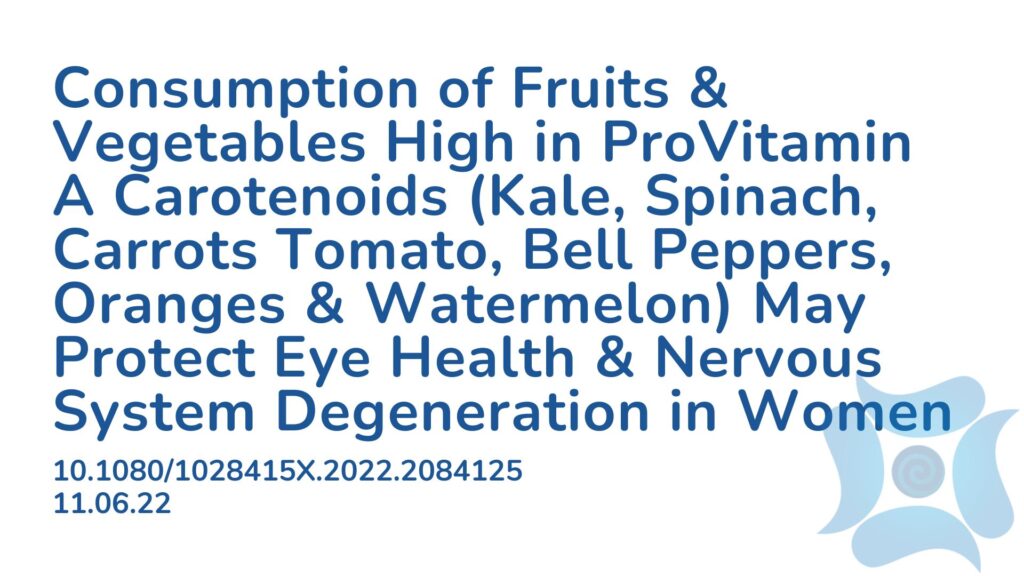Summary: Although data has historically shown women live longer than men, women do have higher rates of disability and illness. This research from the University of Georgia investigated whether a woman’s life can be improved with a better diet and found that foods high in pigmented carotenoids such as kale, spinach, watermelon, bell peppers, tomatoes, oranges and carrots can reduce risk of illness. These fruits and vegetables were found to be particularly important in protecting eye health and cognition due to the carotenoids lutein and zeaxanthin, which improve specific retinal functions and prevent central nervous system degeneration. Although carotenoids can also be taken via supplements, dietary intake showed to be superior in protecting overall health and wellbeing.
Abstract:
Introduction: The mortality-morbidity paradox refers to the inconsistency in survival and disease between males and females: females live longer but tend to suffer greater age-related disease and disability. Many aspects of the latter can be targeted by lifestyle interventions, such as changes in dietary behavior.
Methods: The relevant literature is reviewed.
Conclusion: Dietary intake of the pigmented carotenoids appears to be particularly important for issues such as visual and cognitive loss. This may be due to the highly selective presence of a fraction of carotenoids, namely lutein (L) and zeaxanthin (Z), in specific tissues of the eye and brain. At those sites, L and Z have been shown to directly improve function and prevent central nervous system degeneration. On the palliative side, retinal LZ reduce glare disability, discomfort and photostress, improve chromatic contrast and visual range (e.g., the ability to see through blue atmospheric haze). These effects on input reflect changes in neural output such as improved visual processing speed, problem solving, memory and executive function (presumably due, also, to local effects in areas such as the hippocampus and frontal cortex). These effects on function throughout the central nervous system are mirrored by effects on disease progression. As potent antioxidants/anti-inflammatory agents, and “blue-blockers” within the retina, the pigments prevent loss that precedes neurodegenerative diseases such as age-related macular degeneration and some forms of dementia.
Article Publication Date: 11.06.22
DOI: 10.1080/1028415X.2022.2084125



